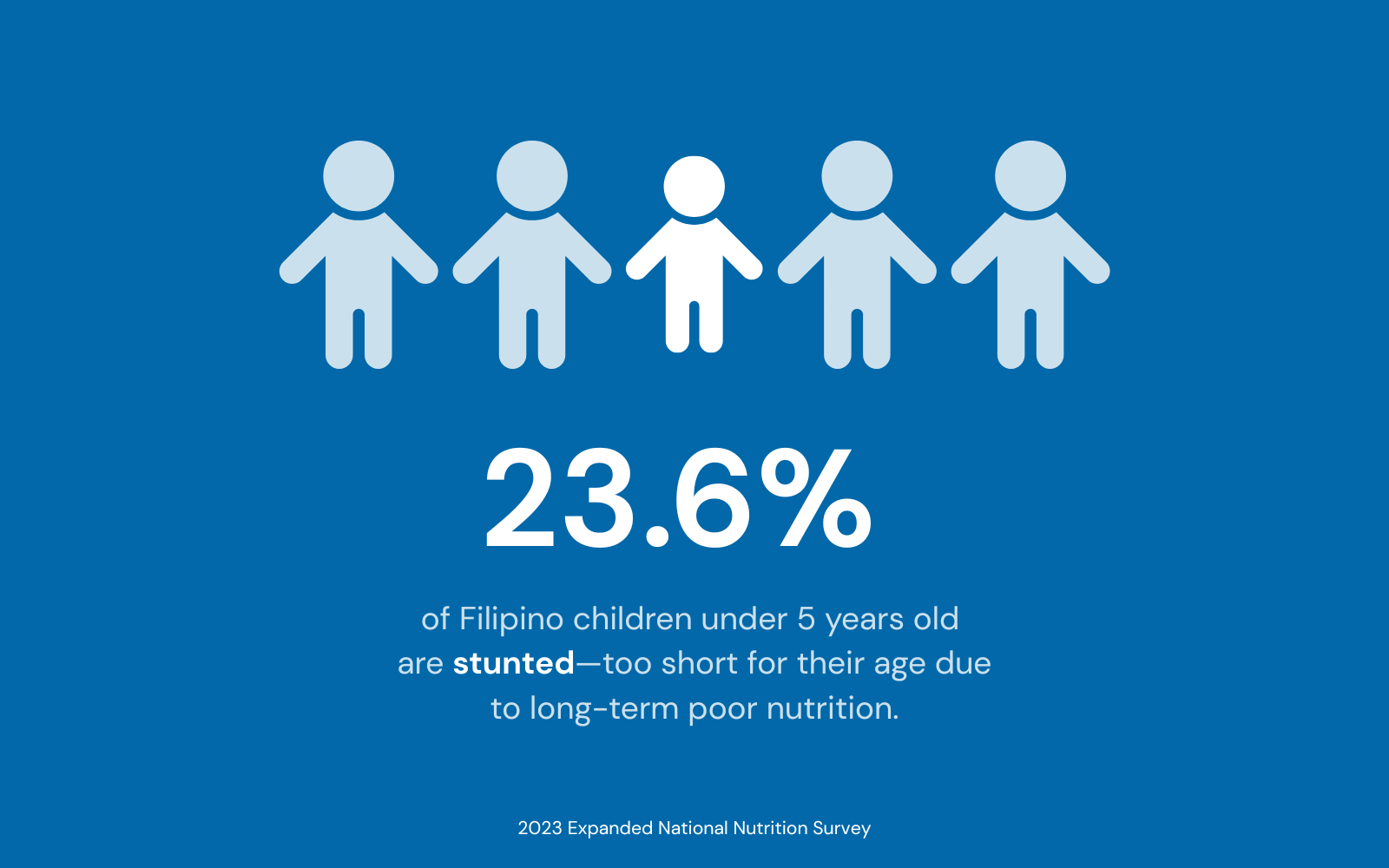The State of Nutrition in the Philippines: 2023 Findings and Next Steps
Insights from the Field

The Department of Science and Technology–Food and Nutrition Research Institute (DOST-FNRI) held the 2025 National Nutrition Summit on June 5, 2025 at Dusit Thani Manila, unveiling the results of the 2023 Expanded National Nutrition Survey. Covering 36,703 households and 115,651 individuals nationwide, the survey provides updated, evidence-based insights into the country’s nutrition landscape.
The findings serve as a critical resource for policymakers, program planners, and implementers, offering timely data to guide national and regional efforts. They highlight both the progress made and the persistent challenges in achieving the Philippines’ health and nutrition goals, reaffirming the urgency of sustained, evidence-based, and locally driven action.
The 2023 Expanded National Nutrition Survey reports that stunting among children under five has declined from 26.7% in 2021 to 23.6% in 2023. However, the burden remains significant, with one in five children still affected. Wasting, an indicator of acute malnutrition, continues to be a concern at 5.6% among children under five and 6.8% among those under two.
These figures point to persistent nutrition gaps, particularly during the critical First 1,000 Days (F1KD) of life. Only 50.4% of infants less than 6 months old are exclusively breastfed, and just 13.9% of children aged 6–23 months receive a minimum acceptable diet. Vitamin A deficiency remains a moderate public health concern, particularly among preschool children aged 6 months to 5 years. Additionally, only 26.6% of infants and preschoolers in this age group meet the recommended energy intake, highlighting significant nutritional gaps in early childhood.
The proportion of nutritionally-at-risk pregnant women has risen to 19.1%, signaling growing concern. While prenatal care coverage is improving, only 22.7% complete the WHO-recommended eight visits for comprehensive care. Alarmingly, just 13.7% of pregnant women meet their recommended daily energy intake.
In addition, three in every ten households experience moderate to severe food insecurity, often forced to reduce meal quality or skip meals altogether. Dietary diversity remains low, particularly among low-income families reliant on staple foods like rice, while food waste is rising, with households discarding an average of 130 grams daily, mostly rice, vegetables, and fish.
These findings call for urgent and coordinated actions. Local Government Units (LGUs) are in a strong position to improve community nutrition. Efforts should focus on the following areas:
- Prioritize the F1KD and sustain nutrition through the next 1,000 days (up to age five) by strengthening maternal and child nutrition programs, breastfeeding support, complementary feeding services, and timely micronutrient supplementation.
- Improve access to quality maternal care by ensuring timely and consistent prenatal visits, comprehensive nutrition counseling, and access to essential supplements such as iron, folic acid, and calcium.
- Invest in local food systems by promoting household food production, improving access to affordable nutritious food, and regulating local food environments. LGUs should integrate nutrition-sensitive agriculture and livelihood programs to enhance dietary diversity and food security, especially in vulnerable communities.
- Promote data-driven, multisectoral governance by strengthening local nutrition committees, utilizing data for planning and accountability, and coordinating across health, agriculture, and social services to effectively sustain and scale nutrition interventions at the community level.
Meeting our national and global nutrition targets by 2030 demands empowered local leadership, evidence-based decision-making, and integrated, multisectoral action that begins with coordinated efforts at the community level today.
—
The Zuellig Family Foundation (ZFF)’s Pook Malusog program helps communities support children’s nutrition. Learn more: https://zuelligfoundation.com/programs/nutrition/